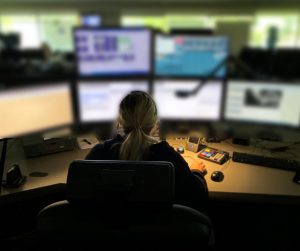It goes without saying that answering emergency calls and dispatching field responders to events is emotionally taxing work. However, it is often the unseen work-life balance issues that create the greatest levels of stress for telecommunicators. Due to staffing shortages and high turnover, emergency telecommunicators are frequently asked to work overtime. This involves either staying on duty past their designated shift, or being asked to come into work on their scheduled days off.
Recently, I interviewed 142 telecommunicators regarding work-life balance stressors. Many of the participants expressed that long shifts and overtime do not mix well with parenting small children. This was especially tricky for single parents. “You can’t leave a preschooler unattended while sleeping off a graveyard shift,” one participant elaborated. In addition, many emphasized the difficulty of finding last-minute child care solutions, especially for night shifts. “Having to make last minute arrangements for child care…emergency daycare is frequently more expensive than (when) scheduled.”
Others expressed that it was particularly stressful to be at work for a long shift when a child was sick. One telecommunicator, who had experienced this situation more than once, advocated for “better management of personnel based on real-life needs.” Like many of her peers in similar situations, she stated that she would like to see more flexible work schedule options. This would have enabled her to return home to her child more quickly, which would in turn lower her stress–ultimately enabling her to focus more completely while at work.
The pandemic has only added to the issue of child care for emergency telecommunicators over the past two years. In many cases, their children’s daycares were either closed, or had reduced hours and enrollment. In some other cases, daycares have closed permanently for reasons related to COVID. Yet these telecommunicators, who also identified strongly with their roles as mothers and fathers, were still expected and needed at work.

From the telecommunicators’ view, creating onsite child care facilities at communications centres would be the best solution to this ongoing issue. As one telecommunicator put it: “It would be amazing to see more child care options…I think it would take away a lot of stress, knowing our children had somewhere consistent and safe to be while we work.” It would also provide telecommunicators with the option of spending time with their children during their breaks, when otherwise they might have missed their children’s entire day due to the long hours of the job.
Another telecommunicator proposed that agencies could offer a wider variety of shifts, other than rigid, traditional schedules: “Provide options for potential split shifts that might help single parents have the ability to spend more time with their children. Provide schedules that allow everyone to have at least one weekend day off.” Along those lines, others suggested creating a norm for positions with 8-hour shifts, or allowing two employees to pair up to exchange hours as needed.
Regardless of the solution to the problem of child care among emergency telecommunicators, the overarching idea was that they wanted the issue recognized – and they wanted to have a voice in resolving the issue.
As one participant summed it up: “I believe in keeping your time off, to spend with your family and to decompress from the work week. When you are being forced to work overtime, it makes you feel like you are not allowed to be happy at home – and that home should be your second priority.”
It is time for those who create and implement government policy in emergency communications centres to recognize this issue from the view of those who actually serve under the headset. Further, resolution of these issues might also benefit those in other branches of emergency services with child care concerns. Ultimately, this type of occupationally-informed stress reduction could positively impact psychological wellness, job performance, and staff retention.

Lisa Rymshaw, PsyD, is a former emergency telecommunicator. In addition to freelance writing and research, she also assists survivors of human trafficking and exploitation.


